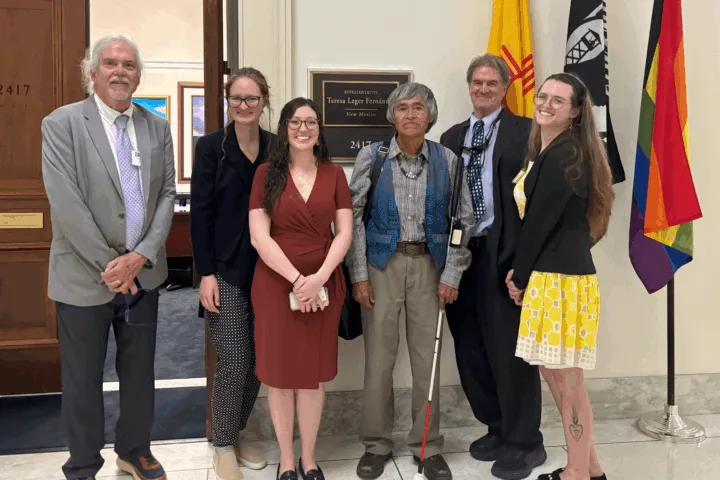Today the United States Supreme Court heard arguments in the case of the Nuclear Regulatory Commission vs. Texas. At issue is whether the NRC exceeded its authority when it approved licenses for proposed “consolidated interim storage facilities” for high-level radioactive waste, and this includes highly irradiated “spent” fuel from nuclear power plants.
Two consolidated interim storage facilities are planned for western Texas and southeastern New Mexico. The Nuclear Waste Policy Act of 1982, as Amended specifically prohibits private “interim” storage of federal spent nuclear fuel, and disallows the Department of Energy from taking title to the waste unless a permanent geologic repository is licensed, built and opened. The law intended to prevent private “interim” storage of federal radioactive waste because interim storage is much less robust than permanent storage, and would double the risk of accident or attack during transport, since consolidated “interim” storage means the waste has to be moved twice, once to the CISF and again to a permanent repository.

The NRC approved recent CISF license applications despite the law, saying it anticipated Congress would change it in the future. But the federal Fifth Circuit court ruled that the NRC didn’t have that authority. So that’s what was on the docket for today, and if the Supreme Court strikes that ruling down, it could open the floodgates for thousands of shipments of spent fuel from nuclear power plants across the US, through most of the lower 48 states, to CISFs in Texas and New Mexico.
The nuclear industry is pushing for CISFs against the interests of fossil fuel companies which object to high-level radioactive waste dumped in their drilling/fracking areas, the state governments of Texas and New Mexico, which have passed laws prohibiting importation of nuclear waste to their states, and cities along the transport routes which object to it being shipped through their jurisdictions.
What did we learn from the arguments today?
First—security. The NRC claims that a single facility would be cheaper and safer to guard than multiple sites across the country. But does centralizing all that nuclear waste really make it less of a target? Think about it: Instead of multiple smaller, secured sites, we’d have one giant target. As the counsel for Texas said, “What the Commission has just done is put a permanent terrorist bulls-eye on the most productive oil field in America.”
Speaking of the location. When the NRC was asked why Texas?, their vague answer was well, no one really wants it, and you know, it was a place that was deemed ultimately, after a lot of study, to have been somewhere where it could be safely stored.
Except here’s the problem: There are no nuclear power plants near this site. Texas and New Mexico never generated this waste, yet they’re being forced to take it. On top of that, Texas has been experiencing more earthquakes than ever before. What happens if a quake damages the storage facility? What about fires? Floods? Groundwater contamination? The arguments today didn’t even touch on these environmental risks one time.
On interim vs permanent storage – The government says this is only a temporary solution, but there was plenty of confusion on this and for good reason. Justice Neil Gorsuch said, word for word, “That doesn’t sound very interim to me,” and questioned storing spent nuclear fuel “on a concrete platform in the Permian Basis, where we get all our oil and gas from.”
Texas and local landowners are fighting this case because it’s not how nuclear waste storage was ever supposed to work. There is no precedent for moving this much spent fuel to a private facility indefinitely. The only example the government gave in court was a failed reprocessing plant where they just left the waste because they didn’t know what else to do. That’s not a plan—it’s an excuse.
The Supreme Court’s decision is expected by June. If the NRC wins, we will have to fight Texas and New Mexico becoming the country’s nuclear dumping ground indefinitely. But if Texas and Fasken win, it sends a clear message: You can’t ignore the law, and you can’t force communities to take on nuclear waste they never agreed to store.
A court decision is expected in June.
Listen and read the full transcript here: https://www.supremecourt.gov/oral_arguments/audio/2024/23-1300
See more: apnews.com/article/supreme-court-nuclear-waste-texas-new-mexico, houstonchronicle.com/politics/article/nuclear-waste-texas-scotus

